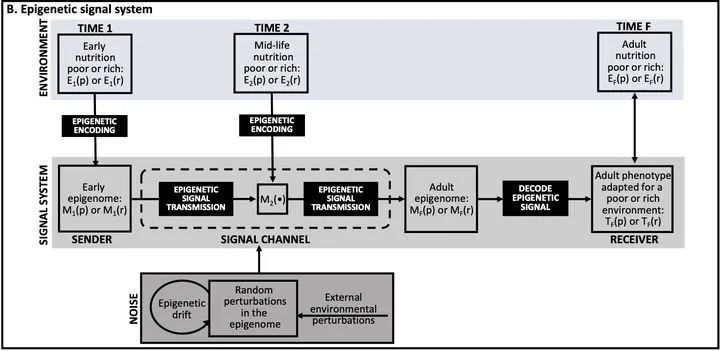Epigenetics and the maintenance of developmental plasticity: extending the signalling theory framework
Jan 21, 2018·
,
,
,
,
,
·
0 min read
Zachary M. Laubach
Wei Perng
Dana C. Dolinoy
Christopher D. Faulk
Kay E. Holekamp
Thomas Getty

Abstract
Developmental plasticity, a phenomenon of importance in both evolutionary biology and human studies of the developmental origins of health and disease (DOHaD), enables organisms to respond to their environment based on previous experience without changes to the underlying nucleotide sequence. Although such phenotypic responses should theoretically improve an organism’s fitness and performance in its future environment, this is not always the case. Herein, we first discuss epigenetics as an adaptive mechanism of developmental plasticity and use signaling theory to provide an evolutionary context for DOHaD phenomena within a generation. Next, we utilize signalling theory to identify determinants of adaptive developmental plasticity, detect sources of random variability - also known as process errors that affect maintenance of an epigenetic signal (DNA methylation) over time, and discuss implications of these errors for an organism’s health and fitness. Finally, we apply life-course epidemiology conceptual models to inform study design and analytical strategies that are capable of parsing out the potential effects of process errors in the relationships among an organism’s early environment, DNA methylation, and phenotype in a future environment. Ultimately, we hope to foster cross-talk and interdisciplinary collaboration between evolutionary biology and DOHaD epidemiology, which have historically remained separate despite a shared interest in developmental plasticity.
Type
Publication
Biological Reviews